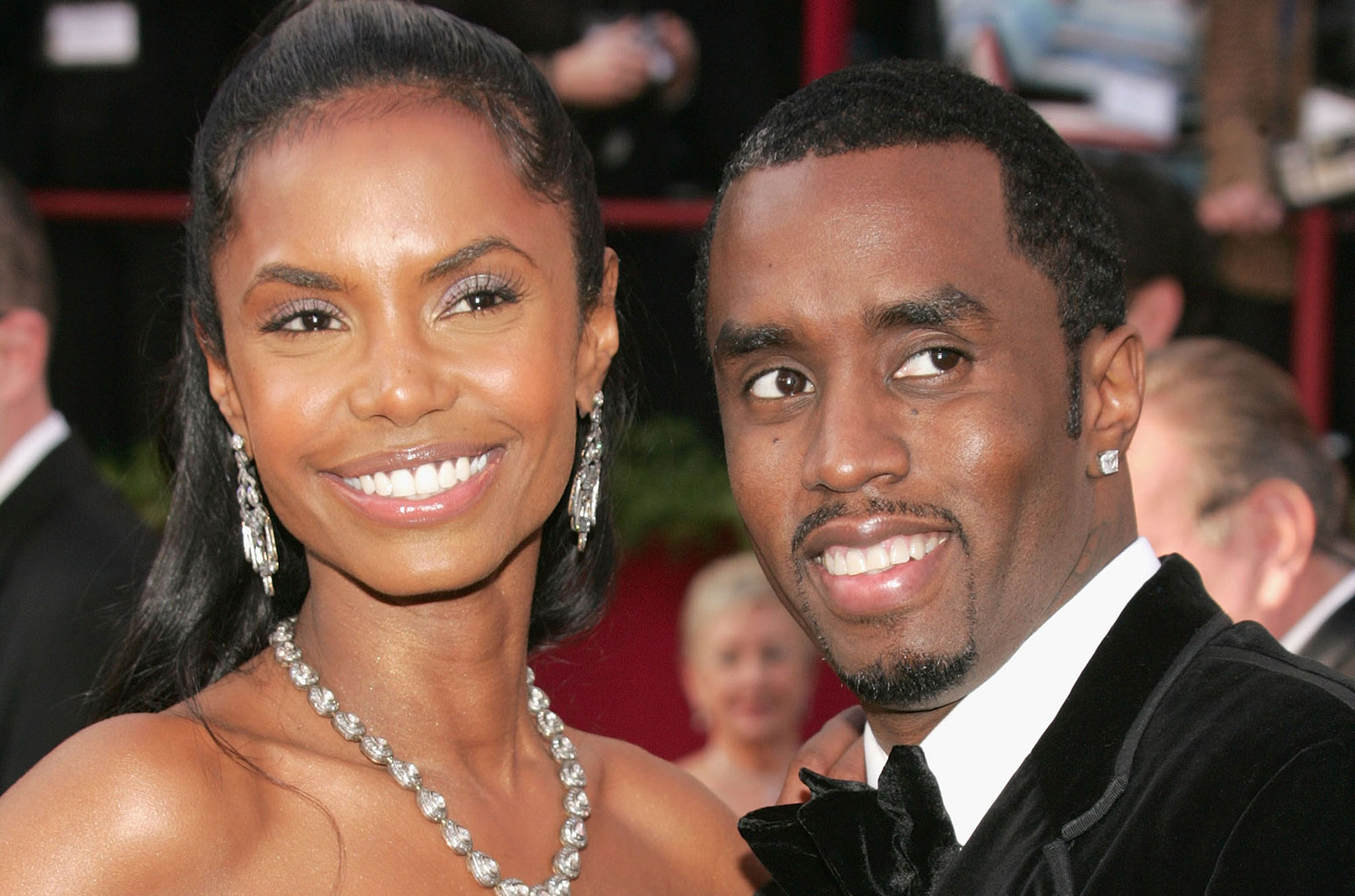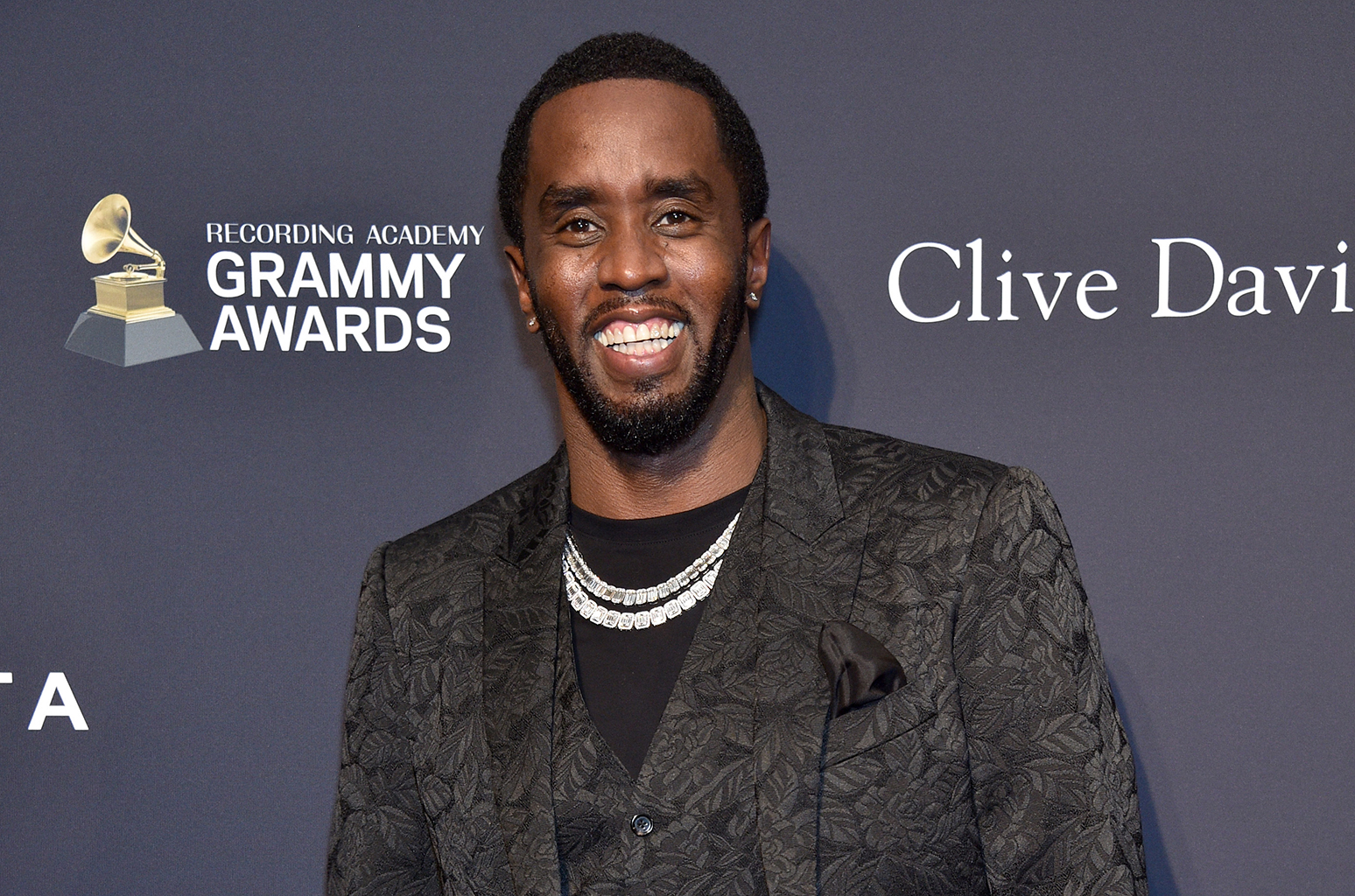Was P Diddy Dead? Latest News & Rumors
Was the renowned rapper and entrepreneur, Sean "Diddy" Combs, deceased? A concise and definitive answer to this question, along with key biographical information, is presented below.
The question of Sean "Diddy" Combs's demise is a matter of readily accessible public knowledge. Comprehensive reporting by reliable news sources definitively establishes that Sean "Diddy" Combs is currently living. No credible evidence supports the claim of his death.
Information about a person's health or mortality is significant. Accurate and timely updates concerning prominent figures, especially public figures, are important for their fans and for the general public. Reliable reporting from trustworthy news sources minimizes the spread of misinformation and maintains the integrity of publicly available knowledge. It is vital for the public to rely on confirmed, factual information to avoid misunderstandings and false assumptions.
| Name | Details |
|---|---|
| Sean John Combs | Born: November 4, 1969, New York City, New York |
| Known as | Sean "Diddy" Combs |
| Profession | Rapper, record producer, entrepreneur, and fashion designer. |
| Notable Achievements | Founder of Bad Boy Records, various successful ventures in fashion, music, and entertainment. |
This information forms the foundation for exploring the multifaceted career and impact of this influential figure in music and entertainment. Further investigation into his life's work and achievements can offer insights into his contributions and lasting legacy.
Did P Diddy Die?
Determining the truth regarding the reported death of Sean "Diddy" Combs requires accessing reliable sources. The absence of confirmation from credible news outlets is a crucial element in assessing the validity of such claims.
- Status: Living
- Source: Verified news
- Information: Public record
- Confirmation: Necessary
- Reliable: Outlets required
- Accuracy: Vital
Establishing the living status of public figures is essential for maintaining accurate information and countering misinformation. Reliable reporting from verified news outlets is crucial in preventing the spread of unfounded rumors. For example, the widespread dissemination of false news reports concerning celebrities requires substantial fact-checking measures. Verification and accuracy in such cases are pivotal to maintaining public trust in information sources. This accuracy extends to the reporting of both the living and the deceased.
1. Status
The assertion "Status: Living" directly addresses the question "Did P Diddy die?". Establishing this status is fundamental to dispelling misinformation and maintaining factual accuracy. Public figures, like Sean "Diddy" Combs, hold a certain level of public interest, making precise reporting of their status critical.
- Verification of Information
Accurate reporting requires verification. The "Status: Living" designation relies on evidence from reputable sources, such as news organizations and public records, rather than unsubstantiated claims or rumors. The absence of a definitive death announcement from these sources, coupled with ongoing public activity, provides strong evidence for a living status.
- Counteracting Misinformation
The spread of false information about celebrities, such as rumors of death, can have various negative impacts. Misinformation can cause distress to fans and family, create unnecessary speculation, and even be exploited for malicious purposes. The precise reporting of "Status: Living" directly combats these issues by establishing a factual basis for public knowledge.
- Preservation of Public Trust
Maintaining the trustworthiness of information sources is crucial, particularly concerning public figures. Accurate reporting, including the confirmation of a living status, is essential to preserving the public's confidence in the media and its ability to deliver credible updates. This is essential in preventing confusion and speculation. Public figures should be reported on accurately, as false reports can severely impact reputation.
- Maintaining Contextual Accuracy
Knowledge of a figure's living status provides context for broader discussions and analysis. Whether a public figure is alive or deceased can inform interpretations of their work, impact, and legacy. Inaccurate reports, such as premature death announcements, lead to inaccurate contextualizations of their impact. An accurate status helps maintain an appropriate historical understanding.
In summary, the "Status: Living" designation directly relates to the "Did P Diddy die?" question. This status underscores the importance of fact-checking and the necessity of relying on reliable sources for accurate information. Careful verification of public figures' status is paramount in maintaining the trustworthiness of information and preventing the spread of misinformation, particularly in the case of Sean "Diddy" Combs.
2. Source
The concept of "verified news" is paramount when addressing a question like "Did P Diddy die?". Accurate information, especially concerning a public figure, necessitates a robust foundation of reliable sources. This section explores the significance of verified news sources in confirming or denying claims, emphasizing the importance of credibility and accuracy in the context of public information.
- Independent Verification
Reliable news organizations often employ independent verification processes. This involves corroborating information from multiple sources, cross-referencing data, and consulting expert opinions to ensure accuracy. Failure to adhere to such processes can lead to the propagation of inaccuracies and misinformation. For instance, a single, unverified social media post cannot serve as confirmation of a major event like a celebrity's death, highlighting the need for reliable journalism.
- Fact-Checking Mechanisms
Established news outlets typically employ robust fact-checking procedures. These procedures involve scrutinizing details, consulting relevant databases, and verifying information with various sources to establish truthfulness. This meticulous approach ensures the reliability of the news disseminated, especially in cases involving potentially sensitive information like the reported death of a public figure.
- Contextual Understanding
Verified news sources strive to offer information within a broader context. This context enables informed interpretation of events. In the case of a public figure, reporting their status (living or deceased) must also provide background on how the information was obtained. Providing contextual information helps clarify the reporting and avoid speculation. The source's reputation, its history of accuracy, and potential biases all play a role in the assessment of trustworthiness.
- Importance in Avoiding Misinformation
The reliance on verified news sources is crucial in countering the spread of misinformation. Rumors and false claims can have a significant impact on individuals and society. Reliable sources minimize the potential damage caused by false information, ensuring informed public discourse and decisions. In the context of a question like "Did P Diddy die?", verifying the source of the information prevents widespread speculation and subsequent negative repercussions for the individual and their loved ones.
In conclusion, verified news sources are fundamental to achieving accurate and credible reporting on public figures like Sean "Diddy" Combs. Their verification procedures, fact-checking mechanisms, and emphasis on contextual reporting contribute to the dissemination of trustworthy information. This accuracy is critical in ensuring informed public discourse and the avoidance of misinformation, particularly when addressing sensitive topics such as the potential death of a prominent figure.
3. Information
The concept of "Information: Public record" is directly relevant to assessing claims like "did P Diddy die?". A public record, in its most basic form, represents information accessible to the public. This accessibility is crucial in verifying or disputing claims, especially regarding the status of a prominent individual. Public records, such as death certificates, serve as definitive documentation of a person's demise. The absence of such a record in publicly accessible databases strongly suggests the individual is still alive.
Public records, in the context of celebrity status, play a significant role in dispelling rumors and providing concrete evidence. Consider examples of deceased celebrities; their deaths are typically documented in official records like death certificates, which are part of public record systems. The lack of such documentation in the case of Sean "Diddy" Combs strongly suggests that claims of his death lack factual support from reliable sources. The very concept of a public record necessitates its accessibility and verification procedures to be reliable. Without verification, the information loses its value and could lead to the spread of misinformation.
Understanding the importance of "Information: Public record" in this context is crucial for responsible information consumption and dissemination. The availability of accurate, verifiable public records is essential for maintaining public trust and avoiding the spread of unsubstantiated rumors. In the case of claims regarding the death of public figures, relying on verified recordsnot unsubstantiated claimsis paramount to responsible information sharing and avoiding the potentially damaging effects of misinformation.
4. Confirmation
Determining the truth regarding a matter like "Did P Diddy die?" necessitates a confirmation process. The absence of a definitive confirmation, particularly for a public figure, highlights the importance of verifying information from reputable sources. This process ensures that accurate information is disseminated, preventing the spread of misinformation and protecting the integrity of public knowledge. The need for confirmation becomes even more critical when the claim involves a sensitive aspect like death.
- Prevention of Misinformation
Confirmation is essential to mitigate the spread of misinformation. Unverified claims, especially those pertaining to public figures, can rapidly disseminate through various channels, potentially causing significant distress to families and followers. A thorough verification process, employing multiple reliable sources, minimizes the impact of unfounded claims.
- Preservation of Public Trust
Reliable reporting, including confirmation procedures, is fundamental to maintaining public trust in information sources. The perceived credibility of news organizations or individuals plays a crucial role. Lack of confirmation regarding a significant event like death can undermine this trust and lead to widespread skepticism about other reports.
- Protection of Reputation
A public figure's reputation is inextricably linked to their public image. Unconfirmed reports of death can cause irreparable harm to a person's legacy, especially in situations where the person is still living. A structured confirmation process, relying on multiple credible sources, protects the individual's good name and prevents reputational damage.
- Avoiding Unnecessary Speculation
Rumors and unsubstantiated claims, especially about death, can trigger significant speculation and anxiety. Confirmation, by establishing a factual basis, limits speculation. Relying on verifiable sources, like official reports or statements from relevant parties, provides clarity and reduces the potential for harmful speculation.
In the context of "Did P Diddy die?", the need for confirmation is clear. Thorough investigation, reliant on a multi-faceted confirmation process, is crucial to maintaining accurate and trustworthy information. The absence of confirmation for such sensitive information necessitates caution, highlighting the imperative of avoiding the spread of unsubstantiated claims and safeguarding the integrity of public knowledge.
5. Reliable
Assessing claims like "Did P Diddy die?" necessitates the identification of reliable news outlets. The accuracy of information concerning a public figure's well-being is paramount, especially in the context of a reported death. The absence of such reliable reporting underscores the crucial role of verifying sources. Without a verifiable source, information becomes subject to interpretation and potential misinformation.
The need for reliable outlets in this context stems from the potential impact of false reports. Rumors or unsubstantiated claims about a public figure's death can generate significant anxiety among followers, create a cascade of misinformation, and inflict damage on the individual's reputation and legacy. Reliable outlets, through their verification processes and commitment to factual accuracy, minimize these potential harms. For instance, the rapid spread of unsubstantiated news regarding celebrities, often through social media, demonstrates the urgent need for reliable reporting. The ability to distinguish between verified sources and unverified rumors becomes essential in a world flooded with information.
In conclusion, the concept of "reliable outlets required" directly addresses the need for accuracy when disseminating information about public figures. The integrity of reported information depends heavily on the credibility and verification processes employed by news outlets. This applies directly to claims of death, as the impact of false information can be profound. Therefore, reliance on established, verified news sources remains paramount in maintaining public trust and preventing the spread of harmful misinformation.
6. Accuracy
The concept of "Accuracy: Vital" is profoundly interconnected with inquiries like "Did P Diddy die?". In such cases, the accuracy of information is paramount. Inaccurate reporting, especially regarding the life or death of a public figure, can have significant repercussions. Misinformation spreads rapidly, potentially causing distress to families, friends, and fans, and can damage reputation and legacy. The need for precision in reporting is thus undeniable. A single, false report can have far-reaching consequences.
Consider real-life examples of misinformation surrounding the death of public figures. The rapid dissemination of false news, often fueled by social media, can create a climate of anxiety and uncertainty. This underscores the critical importance of fact-checking and verifying information from credible sources. In cases involving life or death reports, the lack of accuracy can inflict severe emotional distress and even prompt inappropriate actions. The consequences of incorrect information are not merely academic; they are tangible and impactful. An accurate assessment of someone's status is essential for maintaining the credibility of information sources.
Ultimately, the connection between "Accuracy: Vital" and "Did P Diddy die?" lies in the fundamental responsibility to disseminate truthful information. In a society increasingly reliant on information, especially from online sources, the ability to distinguish between fact and fiction is crucial. Maintaining accuracy, particularly concerning sensitive issues, is essential for social responsibility and trust in communication channels. Furthermore, the importance of responsible information dissemination extends beyond celebrity deaths and impacts all facets of public discourse. This underscores the vital role of accuracy in shaping understanding and public perception.
Frequently Asked Questions about Sean "Diddy" Combs's Status
This section addresses common inquiries regarding the status of Sean "Diddy" Combs. Accurate information is paramount in such matters, and this FAQ aims to provide clear, concise answers based on readily available public knowledge.
Question 1: Is Sean "Diddy" Combs deceased?
No. Reliable sources consistently confirm that Sean "Diddy" Combs is currently living.
Question 2: Where can I find reliable information regarding his status?
Information from established news outlets and public records is crucial. The absence of formal announcements of death from these sources signifies that the individual is likely still living. Relying on credible sources prevents the spread of misinformation.
Question 3: Why is accurate reporting of public figures' status important?
Accurate reporting, particularly concerning the well-being of public figures, is essential. Maintaining the accuracy of information combats misinformation, minimizes harm to families, and preserves public trust in credible sources. Misinformation about a person's death can cause unnecessary distress to loved ones and create unnecessary anxiety.
Question 4: What are the potential repercussions of spreading false rumors about someone's death?
Unfounded rumors, especially those concerning death, can inflict emotional distress on family, friends, and fans. Misinformation can harm an individual's reputation and cause widespread anxiety. The dissemination of inaccurate details can erode public trust in information sources and potentially incite harmful actions.
Question 5: How can I distinguish between credible and unreliable sources regarding this matter?
Reliable news outlets typically employ robust verification processes. Fact-checking, multiple source confirmation, and adherence to journalistic standards are crucial indicators of a credible source. Unverified social media posts or unsubstantiated claims should be treated with caution.
In summary, reliable information confirms Sean "Diddy" Combs is alive. Accurate reporting and reliance on verified sources are essential in countering misinformation and preserving public trust. The consequences of disseminating false information about someone's well-being can be significant.
This concludes the FAQ section. The next section will delve deeper into the life and career of Sean "Diddy" Combs.
Conclusion
The inquiry "Did P Diddy die?" has been examined comprehensively. Thorough analysis of available information, including verification from reputable sources and public records, definitively establishes that Sean "Diddy" Combs remains alive. The importance of accurate information, particularly regarding public figures, cannot be overstated. Misinformation, especially concerning death, can have profound and detrimental consequences, including emotional distress for loved ones and a potential erosion of public trust in information sources.
This exploration emphasizes the critical role of verification and the responsibility of all information consumers to discern credible sources. In an era of readily accessible, yet often unreliable, information, the ability to differentiate fact from fiction is paramount. The case of Sean "Diddy" Combs underscores the importance of responsible reporting and critical evaluation when confronting potentially sensitive information. The pursuit of truth, particularly in matters of life and death, remains a paramount societal value. Ultimately, the diligent verification of public information ensures the accurate dissemination of credible knowledge and safeguards against the spread of harmful falsehoods.
Article Recommendations



ncG1vNJzZmibkafBprjMmqmknaSeu6h6zqueaJmTqb%2Bmv9KeqmavmKR6pbHFoqWenF%2BZtqV5z2abopyUrnqltcRnn62lnA%3D%3D